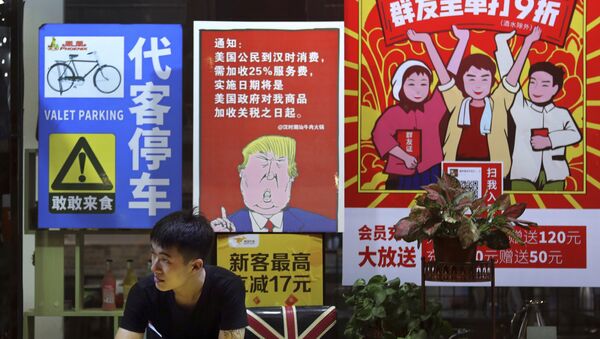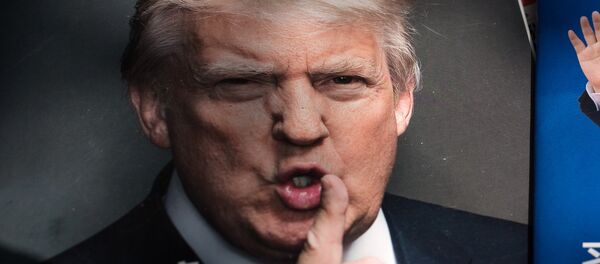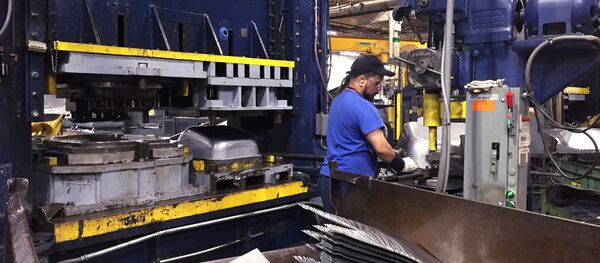On Saturday, Trump doubled down on his promises to work to eliminate the trade deficit with China, warning that the trade deal between the two countries would "become far worse" for Beijing if it had to be negotiated in his second term and telling the Chinese not to daydream about him being defeated in the 2020 election so that a Democrat may give them a better agreement.
Trump made the comments a day after his administration increased tariffs from 10 to 25% on $200 billion in Chinese imports, just hours before a second day of trade talks in Washington with China's top trade negotiator.
However, according to The South China Morning Post, China has its own "range of financial firepower at its disposal to punish the US" for the tariffs war, including its massive $1.123 trillion piggybank of US Treasury bills.
Theoretically, if China were to dump this debt onto the market, US bond prices would drop and force the government to substantially increase yields. That, in turn, would make loans for US corporations and private borrowers more expensive, cooling US growth.
However, Cliff Tan, Tokyo head of global market research at MUFG Bank, told SCMP that China would unlikely to do this, since such a "risky" move would result in "extreme" market volatility.
"Dumping treasuries would be an ineffective weapon for China as that would send yields higher and hurt the positions of their own holdings in treasuries," Tan explained.
Furthermore, SCMP noted that if China sold the treasuries and bought oil instead, energy producers receiving dollars could simply put them back into US Treasuries, thus limiting the 'punishment's' efficacy.
Depreciating the Yuan
According to Tan, a more effective option for China may simply be allow for the yuan to depreciate against the dollar to offset the negative impact of the increased tariffs to keep Chinese exports competitive in the US market.
Several US administrations have demanded that China limit the depreciation of the yuan, with President Trump accusing Beijing of deliberately manipulating its currency to outcompete US producers. If US tariff policy remains unchanged, Chinese authorities may simply disregard US requests in future.
"If there is no currency stabilization pact negotiated, then this is certainly one way China can prepare for what we think is going to be pretty serious escalation of tariffs," Tan said.
Speaking to reporters following his two days of trade talks in the US, Chinese trade negotiator Vice Premier Liu He said he was "confident that the Chinese economy will maintain sustainable and healthy development" in spite of what he called "existing pressure" from Washington. He mentioned China's "gigantic internal market" and "large investment market" as two prospects for continued growth, and emphasised that China was "not afraid" of an economic downturn over the medium and long terms.
"If we consider the state of China's economy in the medium term, we can state that the Chinese economy faced a slight downturn last year. But now, a stage of growth has begun again. So, if we consider it in the long and mid-term, we are extremely optimistic," Liu stressed.
China has already vowed to respond to the increase in tariffs, although it has yet to specify how it will do so.




